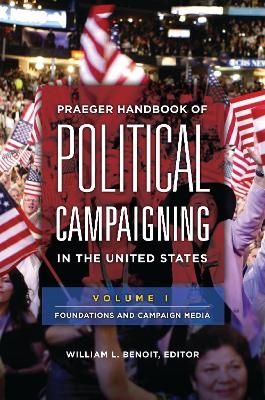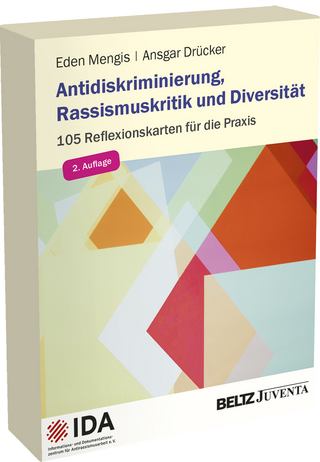
Praeger Handbook of Political Campaigning in the United States
Praeger Publishers Inc
978-1-4408-3162-1 (ISBN)
This comprehensive handbook reveals essentially everything the American public wants to know about political campaigns. The two-volume set begins with a historical overview, then goes on to investigate campaigns from a variety of perspectives that shed light on how they work and why. Readers will discover how campaigns are run, how they're covered by the media, how they influence government, and how various interest groups and demographics play a part in the system.
The contributors—who include academics, elected officials, journalists, and campaign professionals—offer new data, interviews, and analysis in a style that will prove fresh, accessible, and engaging for everyone from college students to political junkies. They offer the inside scoop on types of campaign media—for example, TV spots, debates, and social media—and on message variables such as language, humor, and evidence. Groups of voters like women and youth are examined, and the work also discusses theories of campaigning such as agenda-setting, issue ownership, the Elaboration Likelihood Model, and the Theory of Reasoned Action. Scandal in American political campaigns, always a subject of interest, is addressed as well.
William L. Benoit, PhD, is professor of communication studies at Ohio University.
Introduction
Part I: Messaging
1 Language in Campaign Messages
Sharon E. Jarvis, Maegan Stephens, and Soo-Hye Han
2 Humor in Campaign Messages
David M. Rhea
3 Evidence in Political Campaigns
Jeffrey Delbert
Part II: Voters
4 American Women and Political Campaigns: Communication between Candidates, Voters, and the Media
Dianne G. Bystrom
5 Youth and Elections in American Campaigns
Mitchell S. McKinney and Joshua P. Bolton
6 Scandal in American Election Campaigns
Clarke Rountree
Part III: Theories
7 Outside Groups: Political Action Committees (PACs), 527s, and 501(c)s
R. Sam Garrett
8 The Rise of Fact-Checking in American Political Campaigns
Amanda L. Wintersieck and Kim L. Fridkin
9 Issue Ownership
David Airne
10 Functional Federalism
Jayne R. Goode
11 The Elaboration Likelihood Model in American Political Campaigns
Heather L. LaMarre
12 The Theory of Reasoned Action in American Campaigns
Jerold L. Hale and Paul A. Mongeau
Selected Bibliography
About the Editor and Contributors
Index
IntroductionVolume OnePolitical election campaigns are extremely important events in contemporary society. Election campaigns matter for a variety of reasons. First, they allow voters an opportunity to learn about candidates for office and the policies they embrace. Candidate messages, news coverage of campaigns, and discussions about politics between voters all contribute to informing voters. Citizens can then participate in the political process by voting. Casting their votes permits voters to influence the direction their government takes. Should we fight ISIS, and, if so, how shall we do so? What polities should be implemented for illegal immigrants? Should our tax laws be changed? Turnout can also affect the perceived legitimacy of government.
In America, hundreds of election campaigns are waged for elective office. The contest for the Oval Office attracts the most money and the most attention, which is reasonable because the president is the highest elective office in the United States and arguably the most important political office in the world. However, a multitude of other election campaigns also occur in the United States. Every two years, one-third of the 100 Senate and all 435 congressional seats are up for grabs. All of the 50 states hold campaigns for governor, lieutenant governor, the state legislature, and other offices. Many states even hold elections to determine whether judges are retained in office. Counties and cities also use campaigns to fill elective offices. Although presidential campaigns are worth studying because of the importance of the presidency, other elections are important in and of themselves and happen far more frequently than presidential campaigns. American political campaigns at all levels of government merit scholarly attention.
This volume begins with Zarefsky's discussion of the origins of American political campaigns and the history of American presidential advertising by Kim and Jamieson. Kendall examines the primary phase of election campaigns. McCombs discusses agenda setting, the process whereby the frequency with which an issue is discussed affects the perceived importance of that issue. Framing, the perspective used to understand an issue, is examined by Borah. Campaign financing and fund-raising is the subject of the chapter by Boatright. Cwalina, Falkowski, and Newman analyze the literature on political marketing.
Election campaign media are the subject of the next section of the book. Benoit investigates political television spots and election debates. Miller discusses the theory of videostyle and campaigns. The importance of entertainment and campaigns is explored by Holbert. Kenski and Conway examine the role of social media in today's campaigns. The use of radio in American campaigns is the topic of Blaney's chapter. Glantz discusses the role of the Internet in contemporary election campaigns. Media coverage of American political campaigns is examined by Farnsworth and Lichter (television news) and Compton (newspaper coverage). Brazeal considers nonpresidential election campaigns.
Volume TwoThe second volume begins with an analysis of select message variables in campaign messages. Jarvis, Stephens, and Han investigate the use of language. Most candidates occasionally employ humor; Rhea discusses theory and research on humor. Delbert considers the use of evidence in election campaign messages. Next, this volume takes up women and elections by Bystrom, youth in campaigns by McKinney and Bolton, and the appearance of scandals in elections by Rountree. Fund-raising is more important than ever in political campaigns; Garrett writes about 527s, PACs, and super PACs. Wintersieck and Fridkin look at the role of fact-checking in elections. Airne reports on theory and research on issue ownership. Goode investigates functional federalism. The applicability of the Elaboration Likelihood Model to campaigns is taken up by LaMarre. Hale and Mongeau discuss the theory of reasoned action (and the theory of planned behavior) in campaigns.
| Erscheint lt. Verlag | 22.2.2016 |
|---|---|
| Sprache | englisch |
| Gewicht | 1418 g |
| Themenwelt | Sozialwissenschaften ► Politik / Verwaltung |
| ISBN-10 | 1-4408-3162-9 / 1440831629 |
| ISBN-13 | 978-1-4408-3162-1 / 9781440831621 |
| Zustand | Neuware |
| Haben Sie eine Frage zum Produkt? |
aus dem Bereich

